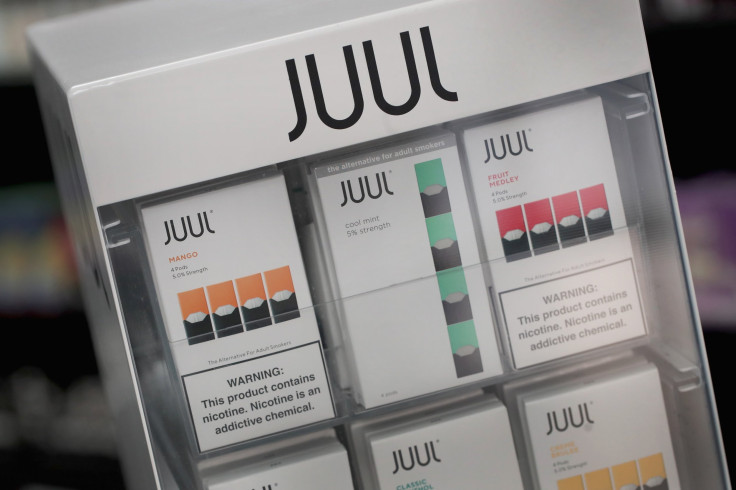Juul Making Up For E-cigarettes Clampdown In US With Philippine Push, Activists Say

Maria Encarnita Limpin, a doctor specializing in pulmonary disease, would obviously be very interested in behaviors that can affect lung health. She noticed that the products of e-cigarette maker Juul, just recently introduced to the Philippines, were now lining the shelves and on display at many shops in the capital city of Manila. "It's like they mushroomed," she says.
Dr. Limpin is the director of a non-profit organization that got laws passed prohibiting the sale and marketing of tobacco products to children in the Philippines. She was shocked at the visibility of Juul’s vaping products located in places that children would frequent. She also noticed that the flavor choices like mango, mint, crème etc. … were “tailor-made” to appeal to teens and even pre-teens.
Juul seems to be following the path that the tobacco companies took in the United States but at an accelerated pace. In 1954, an article in the British Medical Journal confirmed the link between smoking and lung cancer. In 1964, the first Surgeon General's report on smoking was published recognizing the proven link. Two years later health warnings began to appear on cigarette packs.
American smokers declined from about half the population in the 1950s to an estimated 15 percent today as anti-smoking groups continue their quest for a smoke-free America. In the 1980s, according to some researchers, “Big Tobacco” began to target the Asian American and Pacific Islander (AAPI) population in the U.S.
Even today, it is a common occurrence for Filipino’s visiting their homeland to bring gifts of American cigarettes to family and friends. A smoking culture already exists, especially in poorer sectors when smoking a cigarette, especially an American made one, is a little break from the daily poverty many Filipinos still face.
Similarly, e-cigarette companies are now facing scrutiny in the U.S. In 2018, U.S. Surgeon General Jerome Adams issued an advisory on the e-cigarette epidemic among youth. Results from the 2018 National Youth Tobacco Survey found that e-cigarette use rose by 78 percent among high school students and close to 50 percent among middle school students.
The health consequences of vaping are still not known but according to Dr. Albert Rizzo, the chief medical officer of the American Lung Association, while vaping doesn't involve combustion, it still uses chemicals. And "some of these chemicals are carcinogens, very similar to ones that are in regular cigarettes."
Dr Limpin worries that Juul will shift its focus to countries that are less wealthy such as the Philippines and as incomes rise in the developing country, more people will be able to afford e-cigarettes and the pods of chemicals and fall prey to the unproven idea that they are a healthy alternative to smoking.
In the U.S., Juul voluntarily pulled certain flavors from stores that were deemed by the U.S. Food and Drug Administration to be an illegal form of marketing to kids and should therefore be banned.
Juul may not be so compliant in the Philippines where, according to Dr. Limpin, "There's really no good law that will protect us from these kind of tactics."
© Copyright IBTimes 2025. All rights reserved.





















